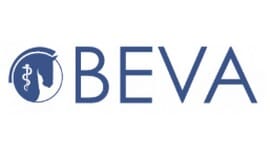
Completely inadvertently, a recent advertisement for some of BEVA’s CPD offerings was emailed out to our membership to encourage as many of our members as possible to sign up for our non-profit-making world-class CPD. However, we got one thing wrong – the images accompanying the advertisement consisted of only white middle-aged males and one of those was me (although I’ll take the “middle-aged” bit)!
The lack of female representation has been pointed out by a number of our members and has provided an opportunity for the BEVA executive, BEVA Council members and me to reflect on the importance of equality, diversity and inclusion (EDI). This is an issue that never seems far from our TV and media sources, but one I have always thought our profession has been pretty balanced with. I believe I have never knowingly discriminated against any individual, either female or because of any other of the nine protected characteristics (age, gender reassignment, marriage/civil partnership, pregnancy, disability, race or colour, religion or belief, and sexual orientation) and I suspect almost all our membership would feel the same way.
It is not enough to just be non-discriminating; we need to work actively to ‘even up the playing field’ for everyone
Our profession has been predominantly female since I qualified in the 1980s and I have always felt this was a strength rather than a weakness. However, there is always the possibility of unconscious bias and this advertisement served to remind us of this. One aspect of this is the failure to realise that the privileged position many of us are fortunate to find ourselves in purely because of circumstances (gender, the country in which we were born, the education we got, etc) are not the same for everyone, and those not as fortunate have had to cope with far more hurdles than we have. Thus, it is not enough to just be non-discriminating; we need to work actively to “even up the playing field” for everyone.
Inclusivity at BEVA
How does BEVA do in terms of inclusivity? I know I speak for the entire organisation when I say that this concept remains at the heart of what we do. While we think we already have a good approach to EDI, there is still room for improvement. We struggle to show visible diversity in some areas and are actively working to address this.
We have an elected BEVA Council with an equal proportion of males and females (10 of each), but should we be more representative of the percentage split of gender in our membership (36 percent female; 21 percent male; 43 percent not declared)?
The gender split on the Council is partly achieved by chance because we have a democratic process of electing Council members from those volunteering to stand and the votes cast by our members. So, if you think BEVA could do better and believe you can contribute to greater inclusivity, then think about putting yourself forward for election to the Council, or, at the very least, make sure you always take part in the Council elections by voting for who you want to represent our profession. We want a BEVA Council that represents all our veterinary members!
BEVA has taken, and continues to take, many steps in developing strengths in inclusivity. We have established an EDI working group, headed by Sophie Eaden (Council), including Lucy Grieve (BEVA), James Wood (Council), Helen Bickerton (Council), and Huw Griffiths (Council and ex-president of BEVA). The overall aim of this group is to encourage EDI throughout the equine veterinary profession, although it was also agreed that they should initially get our own house in order before we focus on the wider veterinary community. As such, all the BEVA office team have undertaken EDI training, and we are currently arranging to have the BEVA Council undertake similar training in the summer.
We have also developed initiatives that while not uniquely designed for women, do focus on our female members or others taking time out of practice
The working group is also looking to brainstorm with relevant people within the veterinary community who identify with one or more protected characteristics to look at the next phase, which will be opened out to BEVA members, so do get in touch if you think you can contribute in this way. We have also developed initiatives that while not uniquely designed for women, do focus on our female members or others taking time out of practice, such as “Back in the Saddle” which has just been launched for those returning to work after a career break.
Final thoughts
But back to the CPD marketing email. We certainly try to pick the best speakers for our CPD based on reputation and experience. For our courses, we don’t focus on the appearance of the speakers, or what their gender is (although we do actively try to make panels more diverse whenever it’s appropriate for the topic).
Rest assured BEVA will continue to strive to create the most inclusive environment so that, as in our mission statement, ‘equine veterinarians in practice thrive’
We always try to ensure a good balance of tutors on the courses we run, and hence it is even more upsetting to us that the images in the recent advertisement did not reflect this. We hold up our hands that we missed the significance of the speakers we were highlighting. We can assure everyone that this was completely unintentional and there are many examples of previous messages that have had a more varied cast. In this instance, we felt that the “star” speakers highlighted in this marketing email were likely to be the strongest draws. It is unfortunate that, by highlighting only white middle-aged men, we painted a picture that did not reflect well on us or what we stand for. Rest assured BEVA will continue to strive to create the most inclusive environment so that, as in our mission statement, “equine veterinarians in practice thrive”.











